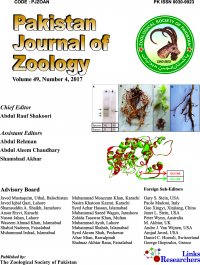The cellular response to stress is mediated by intracellular proteins, called heat shock proteins (HSPs). Among various known stressors, heat is a major factor that induces the production of HSP70. Keeping in view the very hot conditions of Dera Ismail Khan (D.I. Khan) division where the temperature remains at 45-50°C during the months of June to September, it was hypothesized that heat stress conditions do induce the overexpression of HSPs, especially Hsp70. It was thus attempted to find out the possible role of Hsp70 in those human being having the age of 90 years or above, called longevity people, against heat stress conditions. Whole blood samples of 45 longevity individuals and 20 samples of control people were collected in D. I. Khan during September 2018 to October, 2019 after proper approval from Gomal University ethical review board and written consent of each individual was taken prior to collection of blood sample. For serum collection, blood samples were centrifuged at 1000xg for 15 minutes. Quantitative measurement of Hsp70 protein was done using sandwich ELISA technique. The maximum serum Hsp70 level observed was 42ng/ml and minimum serum Hsp70 value was 13ng/ml, with median value of 28ng/ml. In control group, maximum concentration observed was 38ng/ml while the minimum serum level was 18ng/ml with median value of 13ng/ml. In longevity males, serum Hsp70 levels increased in individuals between 89 to 91 years of age, peaked between 92 to 97 years but comparatively lower having the age of above 98 years. On the other hand, serum concentration of Hsp70 in longevity females were highest in those having 89 to 92 years, lower in 93 to 97 years and, like males, lowest having age above 98 years. The study hence, showed that longevity individuals had higher quantities of serum Hsp70 compared to control group, and again, males contained higher concentration than longevity females, showing that thermal stress was the agent leading to over-expression of Hsp70 especially in longevity individuals but in longevity individuals. Whether this increased expression had any impact on longevity is still not clear that needs to be deciphered.










